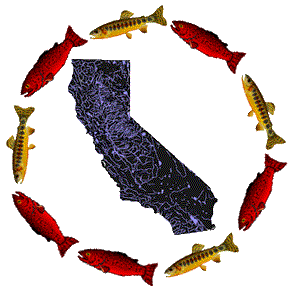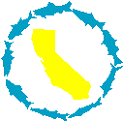|
CSPA |
| Your 501(c)(3) tax deductible cash donations are desperately needed if the fight for our fisheries is to continue. Read how you can donate! |

 More
News
More
News
![]()
 CSPA
and Foothills Water Network submit comments on study plans for the
Yuba-Bear/Drum-Spaulding relicensing
CSPA
and Foothills Water Network submit comments on study plans for the
Yuba-Bear/Drum-Spaulding relicensing
December 24, 2008 -- CSPA, in association with
several other conservation groups and individuals, submitted comments
today on proposed study plans for the Yuba-Bear/Drum-Spaulding (YBDS)
relicensing. This process is being conducted “cooperatively” by
licensees Nevada Irrigation District and Pacific Gas & Electric Co.,
and has been underway for about a year.
The Foothills Water Network (FWN) was formed in
2005 to prepare for several relicensings in the Yuba, Bear and American
River watersheds, as well as to address other water issues in these
areas. Within the YBDS relicensing, CSPA acts as a Foothills Water
Network partner, to economize on effort, combine resources, provide
conservation interests a collective voice, and when appropriate provide
leadership to FWN’s less active or experienced groups or individuals.
CSPA played a significant role in coordinating,
writing and assembling these FWN comments. You can read the comments Here.
Background
Every thirty to fifty years, operators of
hydroelectric projects that are not owned by the federal government are
required by relicense their projects through the Federal Energy
Regulatory Commission (FERC). FERC’s official relicensing process is
called the Integrated Licensing Process (ILP). The ILP sets out specific
timelines and milestones which participants in the relicensing (project
licensees, regulatory agencies, conservation groups and other
non-governmental organizations, local stakeholders, and other interested
parties) must meet. The process takes about five years.
Early in the process, participants decide on
studies that will be conducted so that project impacts on resources
(including water and fish) can be evaluated. There are commonly thirty
to forty studies that are conducted. The format for proposed study plans
is laid out by FERC. Disagreements often occur over the cost (borne by
the licensees), the extent, the geographic scope, and the reports that
are associated with each study.
Over the last six years, an unofficial paradigm has
also been established in California relicensings. Resource agencies pool
their resources to address and jointly respond to various requirements
of the ILP. Cooperation between the resource agencies and NGO
stakeholders has also become increasingly common.
The Foothills Water Network was established to
facilitate cooperation among conservation interests in the Yuba, Bear
and American River watersheds. These watersheds are highly engineered,
with dozens of reservoirs and diversions, and twenty powerhouses. FWN
has worked to improve understanding among conservations interests of
these hydrologic systems, and to promote effective, cooperative actions
in relicensing hydro projects and in other water-related processes. In
the Yuba-Bear/Drum Spaulding relicensing, FWN is in many respects
similar to the Resource Agency caucus, allowing conservation interests
to pool their resources and talents to present a unified response to the
numerous demands of the ILP.
Like many coalitions, FWN is composed of parties who share many fundamental values. However, participation by CSPA or any other entity within the Foothill Water Network does not imply agreement on any points or policies other than those that are explicitly documented.